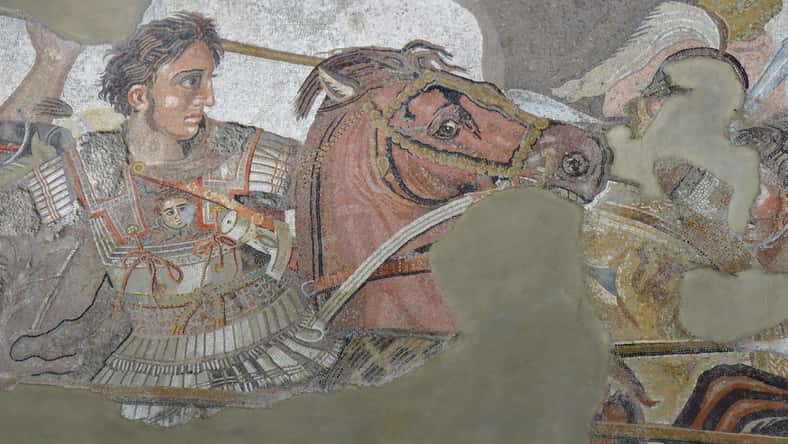Alexander The Great’s Lost Battlefield Has Been Uncovered In Turkey

More than 2,300 years ago, one of Alexander the Great’s most major battles took place at a site near the Biga River in Çanakkale Province in northwestern Turkey.
The river was known as the Granicus in ancient times. A research team has now uncovered the location of the battlefield.
The Battle of Granicus occurred in 334 B.C. It was Alexander’s first significant victory during his campaign against the Persian Achaemenid Empire.
The battle marked the beginning of Alexander’s conquest of Asia Minor, a region that is now made up of most of modern-day Turkey.
His success in that battle led to later victories that would eventually trigger the downfall of the Persian Achaemenid Empire.
In the end, his influence established the groundwork for the Hellenization of large portions of Asia. Even today, several cities he founded are still important cultural centers.
Starting in 336 B.C., when he was just 20-years-old, Alexander the Great ruled the kingdom of Macedon on the northeastern part of the Greek peninsula until his death in 323 B.C. at the age of 32. He came into power after his father was murdered by his bodyguard.
He launched extensive military campaigns during his reign, creating one of the largest empires the ancient world had ever seen.
It spanned from Greece to northwestern India. To this day, Alexander the Great is regarded as one of history’s most successful military commanders.

Sign up for Chip Chick’s newsletter and get stories like this delivered to your inbox.
Some historians say that Alexander died of malaria or other natural causes, but others believe he was poisoned. Either way, he never appointed a successor.
“[The Battle of the Granicus] is considered one of the most pivotal moments in world history,” said Reyhan Korpe, an archaeologist with Çanakkale Onsekiz Mart University (ÇOMU) in Turkey.
“Following his victory here, Alexander went on to conquer Western Anatolia and much of Asia, extending his empire into India.”
After Alexander died, bloody fights broke out for power, control, and a place on the throne. Ultimately, the empire that he worked so hard to build fell apart.
Korpe initiated an archaeological mission 20 years ago with the aim of identifying the exact site of the battlefield.
Now, finally, his efforts have paid off. His team studied the area and carefully analyzed ancient textual sources to find the battlefield, the villages involved, and their position in the landscape.
In addition, the researchers were able to track the route that Alexander and his forces took to travel to the site of the battle.
According to Korpe, the route began in Ozbek village, crossed through Umurbey and Lapseki, and ended at the Biga Plain.
Currently, there are plans to develop the site into a destination for tourists as part of the “Alexander the Great Cultural Route” project.
More About:News